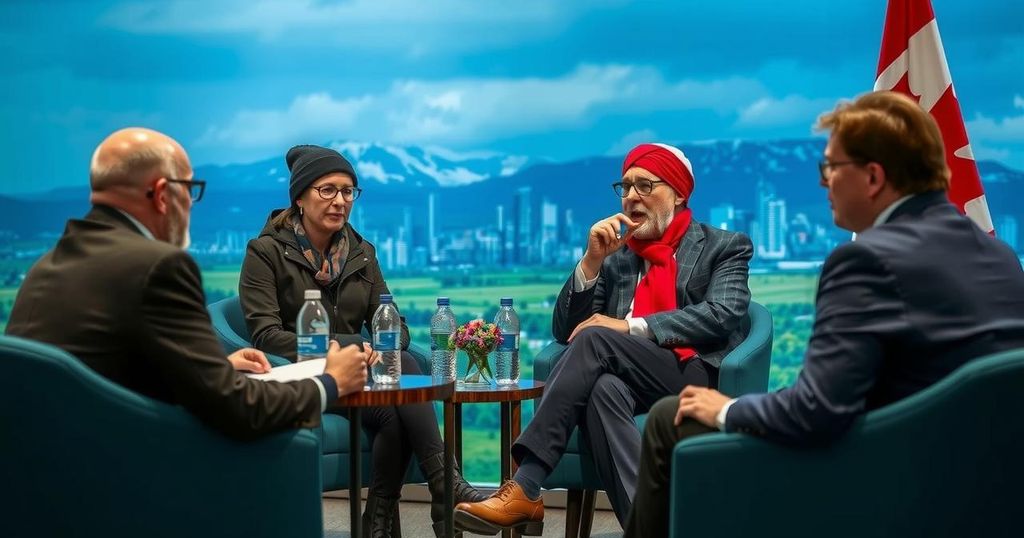Steven Guilbeault, Canada’s Environment Minister, discussed at COP29 the country’s initiatives to combat climate change, including a $2 billion fund for vulnerable countries and setting pollution caps on the oil and gas sector. He emphasized collaboration among nations to address climate issues and encouraged youth engagement in environmental advocacy. With ongoing challenges like pollution and environmental racism, he called for a shift towards conservation and a sustained collective effort to mitigate the impacts of climate change.
In a recent conversation, Steven Guilbeault, the Minister of Environment and Climate Change for Canada, discussed the outcomes of COP29, held in Baku, Azerbaijan, emphasizing the ongoing global commitment to address climate change. Minister Guilbeault articulated Canada’s initiatives, including the unveiling of a $2 billion international fund named GAIA to assist countries in the Global South grappling with climate impacts, particularly those at risk from rising sea levels and severe weather events.
While expressed optimism regarding funding increases for vulnerable nations, he underscored shortcomings in pollution reduction goals from the COP29 agreements, relating the need for more robust action. Guilbeault acknowledged the grueling yet vital work being conducted over decades in international negotiations and reinforced the concept that no single nation can tackle climate change alone; cooperation remains paramount.
He addressed environmental concerns directly impacting Canadian youth, including floods, hurricanes, and smoke from wildfires, emphasizing the collective responsibility and encouraging young people to remain hopeful while participating in climate action. Moreover, he elucidated Canada’s approach to fossil fuel production and pollution control while implementing a cap on emissions from the oil and gas sector.
Minister Guilbeault underlined the necessity for a paradigm shift in national resource management, advocating for conservation over exploitation and acknowledging the intertwined issues of environmental racism impacting low-income and Indigenous populations. He conveyed a need for sustained efforts and encouraged the youth’s active involvement, asserting their voices are essential in ongoing discussions regarding climate strategies.
The article revolves around an interview with Steven Guilbeault, Canada’s Minister of Environment and Climate Change, following his participation in COP29, the 29th Conference of the Parties to the United Nations Framework Convention on Climate Change. This conference, which took place from November 11 to 22, 2024, focused on global efforts to combat climate change, highlighting the joint responsibilities of nations, funding initiatives for developing countries, and addressing local environmental impacts faced by Canadians, especially youth. The overarching theme of the conversation centers on collaboration, climate initiatives, and the critical need for sustained action against climate change, alongside addressing the specific vulnerabilities faced by marginalized communities in Canada.
Minister Guilbeault’s insights from COP29 reflect a pivotal moment in global climate diplomacy, signifying both the strides made and the challenges that remain. The Canadian government’s commitment to aiding vulnerable populations through initiatives like GAIA and the intention to cap oil and gas sector emissions signals a multifaceted approach to climate policy. However, the need for a more aggressive stance on pollution reduction is evident, necessitating a collective effort involving all stakeholders, particularly youth, who must remain engaged in the fight against climate change. A culture shift towards environmental stewardship is essential for future sustainability and resilience against climate threats.
Original Source: www.cbc.ca






